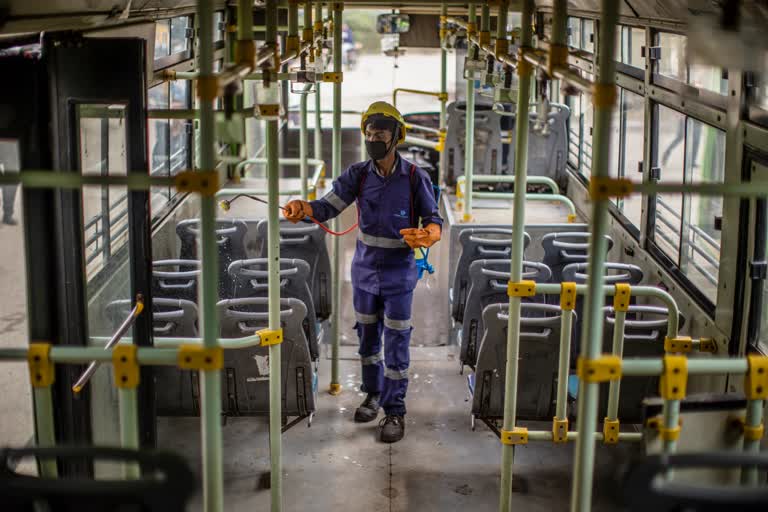New Delhi: The coronavirus shock is a severe hit to the global economy, tipping it into a recession. This is a shock where the antidote is also an economic killer – the pandemic is best managed through pre-emptive lockdowns.
India has just launched into this large-scale, asking its 1.3 billion people to stay indoors for protection and containment of the virus’ spread. It follows restrictions on airlines, travel, recreation, and many other activities and services earlier in the month.
The shock comes at a particularly bad time: the economy was already slowing for last three years, its financial system is weak and vulnerable, and all segments, including government, private non-financial and household sectors are debt-stressed.
The economic costs of large-scale shutdowns of businesses are colossal and unimaginable for now. But its reasonable to guess these are likely to be temporary, even though deep, if the situation is controlled soon.
Chances of V-shape bounce back from a recession that is state-induced to fight a deadly disease would be high.
But if the pandemic duration is stretched out, and along with that most activities and services, the economic wreckage could be massive and some of the losses could turn permanent.
That this comes on top of the NSSO survey reporting that unemployment in India was at a 45-year high two years ago, though not accepted officially, worsens matters.
Shutdowns of plants, businesses and numerous services, coupled with a fall in consumer demand for many of these, are a double knock to employment too.
Unfortunately, India is severely vulnerable on this count: around two-fifths of its employment is informal; a sizeable chunk of this works without written contracts (e.g. domestic workers, daily wage labourers, etc); the self-employed include many providers of low-productivity services (e.g. hawkers, retail, repair and personal services); while services account for 54% of the country’s aggregate output.
The impact of lockdowns upon such jobs is humongous, especially as large shares of workers depend upon daily wages and cash flows; even where employment are contractual, as a sizeable share of jobs are with small and medium businesses that are inherently weak.
Read more:Coronavirus can spread through currency notes
Fighting COVID-19 thus raises the spectre of severe, adverse employment effects.
In the immediate context, it is the incomes of daily wagers and earners that are hit.
Companies may put retrenchments, lay-offs on hold in the hope that activities may soon resume; this does not however, guarantee there will be no pay cuts – if sales, revenues and cash flows face a crunch, it will feedback into wages and salaries.
If the stoppages last long, the employment outlook turns very grim. For a portion of the temporary job losses and reductions in wages, salaries and earnings at this point could well morph into a permanent fall in employment.
This is because the weaker or more vulnerable firms and businesses have lesser resilience to endure a lasting crunch in their cash flows, leading to a rise in bankruptcies, closures, defaults and downscaling operations as individual cases may be.
Initial conditions matter for this, which is why an existing slowdown is a poor augur for future employment if the lockdowns extend too long.
Thus even the best-case scenario – relatively short duration of COVID-19 shock persistence - is a grim one where jobs are concerned. It puts downward pressure upon demand, which was already slowing in both rural and urban areas.
What are the solutions
The situation is changing very fast, which casts high uncertainty upon the economic environment.
But signs of a temporary fall in employment, wages and earnings have become visible. This underlines the urgency of fiscal response, as monetary policy effects do not percolate to these segments who are not connected to the interest rate or credit channels.
The battle against the coronavirus has to be fought with equal vigour on the economic front as well.
The first line of fiscal intervention therefore has to be income support from the government.
This should be immediate and urgent. It is good that some state governments have responded quickly to address the income losses, e.g. Kerala announced a Rs 200 billion package, UP stated Rs 1,000 will be paid monthly to 3.5 million day labourers and constructions workers, and Delhi announced Rs 5,000 rupees pension to be paid to 0.85 million beneficiaries.
The central government should not waste time in responding too.
(Renu Kohli is a New Delhi based macroeconomist. Views are Personal.)


